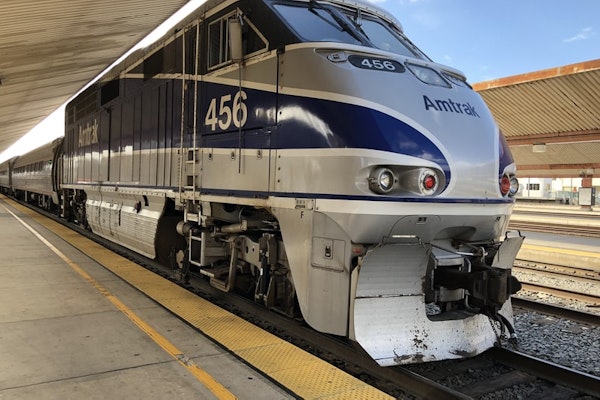
How a $100 Billion Hurricane Could Strike the US and What Insurers Need to Know
Major U.S. metro areas are increasingly vulnerable to $100 billion hurricane losses. This KCC report shows where it’s most likely and how insurers can prepare for the next big one.
August 29
Catastrophe
Insurance Industry
Property
Risk Management
Connecticut
Florida
Louisiana
Massachusetts
New Jersey

What the Dollar Tree Helium Tank Lawsuit Reveals About Insurance Coverage Gaps
A helium tank injury led to a legal fight between Dollar Tree and its insurer. The case shows how coverage exclusions and unclear contracts can leave businesses exposed.
August 26
Insurance Industry
Liability
Litigation
Risk Management
Connecticut

Fake Slip and Fall on Banana Peel at Goodwill Leads to Insurance Fraud Charge
A staged fall in a Goodwill parking lot, falsely blamed on a banana peel and later a broken lighter, has led to an insurance fraud charge following a months-long investigation.
August 14
Fraud
Insurance Industry
Litigation
Property
Weird
Connecticut

Former Insurance Agent Charged in $250K Life Insurance Scam Targeting Multiple States
A former Connecticut insurance agent allegedly defrauded nine victims across multiple states through fake policies, forged documents, and impersonated professionals.
August 5
Fraud
Insurance Industry
Legislation & Regulation
Life & Health
Connecticut
New Hampshire

Wine Server Defends Against Liability in Fatal Drunk Driving Crash After Work Event
A liquor server and distributor argue they aren’t liable for a woman’s fatal crash following a mandatory wine tasting, claiming she was responsible for her own actions.
August 1
Insurance Industry
Legislation & Regulation
Liability
Litigation
Connecticut

Connecticut Court Clears Rental Car Company of Liability in Ignition Lock Case
A Connecticut appellate court ruled that Enterprise had no legal duty to check online databases for license restrictions before renting a car to a driver later charged with DUI.
July 25
Auto
Legislation & Regulation
Liability
Litigation
Connecticut

Storm Surge Risk Threatens Billions in Coastal Property Value Across 20 States
Over 6.4 million homes in coastal U.S. states face moderate or greater storm surge risk, with $2.2 trillion in potential reconstruction costs, according to 2025 Cotality data.
June 2
Catastrophe
Legislation & Regulation
Property
Risk Management
Alabama
Connecticut
Delaware
District Of Columbia
Florida

Connecticut Bans AI Claim Denials and Caps Rate Hikes in Sweeping Health Insurance Reform
Connecticut’s Senate Bill 10 curbs AI-driven claim denials, tightens rate hike rules, and expands patient protections, with major reforms taking effect October 1, 2025.
May 28
Insurance Industry
Legislation & Regulation
Life & Health
Technology
Connecticut

Connecticut Moves Swiftly to Block Massive Spike in Workers’ Compensation Insurance Rates
Facing a 235% hike in workers’ compensation premiums after a court ruling, Connecticut lawmakers passed urgent legislation to stabilize insurance costs for employers statewide.
May 20
Insurance Industry
Legislation & Regulation
Risk Management
Workers' Compensation
Connecticut

Amtrak Health Plan Defrauded of $12 Million by Over 100 Employees and Medical Providers
Over 100 Amtrak employees joined forces with medical providers in a fraudulent health insurance scheme that cost the company more than $12 million, a new report finds.
May 12
Fraud
Insurance Industry
Legislation & Regulation
Risk Management
Connecticut
Delaware
District Of Columbia
Maryland
New Jersey

Former Mars Wrigley Manager Accused of Stealing $28 Million Through Elaborate Fraud Scheme
A Connecticut man faces a nine-count federal indictment after allegedly stealing over $28 million from Mars Inc. through fake companies, diverted payments, and tax evasion.
March 31
Fraud
Insurance Industry
Litigation
Risk Management
Connecticut

Connecticut Man Arrested in $50K iPhone Insurance Fraud Scheme
A Connecticut man was arrested following an investigation into a fraudulent iPhone insurance scheme that involved the use of mules and fake claims to obtain replacement devices.
February 4
Fraud
Insurance Industry
Litigation
Technology
Connecticut

Pennsylvania Man Sentenced to Prison for $1.4 Million Insurance Fraud Scheme
Former insurance claims handler James Keating received a 20-month prison sentence for defrauding Allied World Insurance out of more than $1.4 million through shell companies and kickbacks.
January 30
Fraud
Insurance Industry
Litigation
Risk Management
Connecticut
Pennsylvania

Cannabis Grower’s $1.3M Business Income Claim Denied After Fire Damages Crops
A federal court ruled that a cannabis grower’s business income loss was not covered by its insurance policy after a fire damaged crops but did not halt overall operations.
January 24
Insurance Industry
Litigation
Property
Risk Management
Connecticut

Consumers Weigh in on AI Use in Severe Weather Insurance
A new report reveals mixed consumer opinions on insurers using AI for severe weather predictions, highlighting the need for transparency and education to build trust in these tools.
January 21
Insurance Industry
Property
Risk Management
Technology
Connecticut





